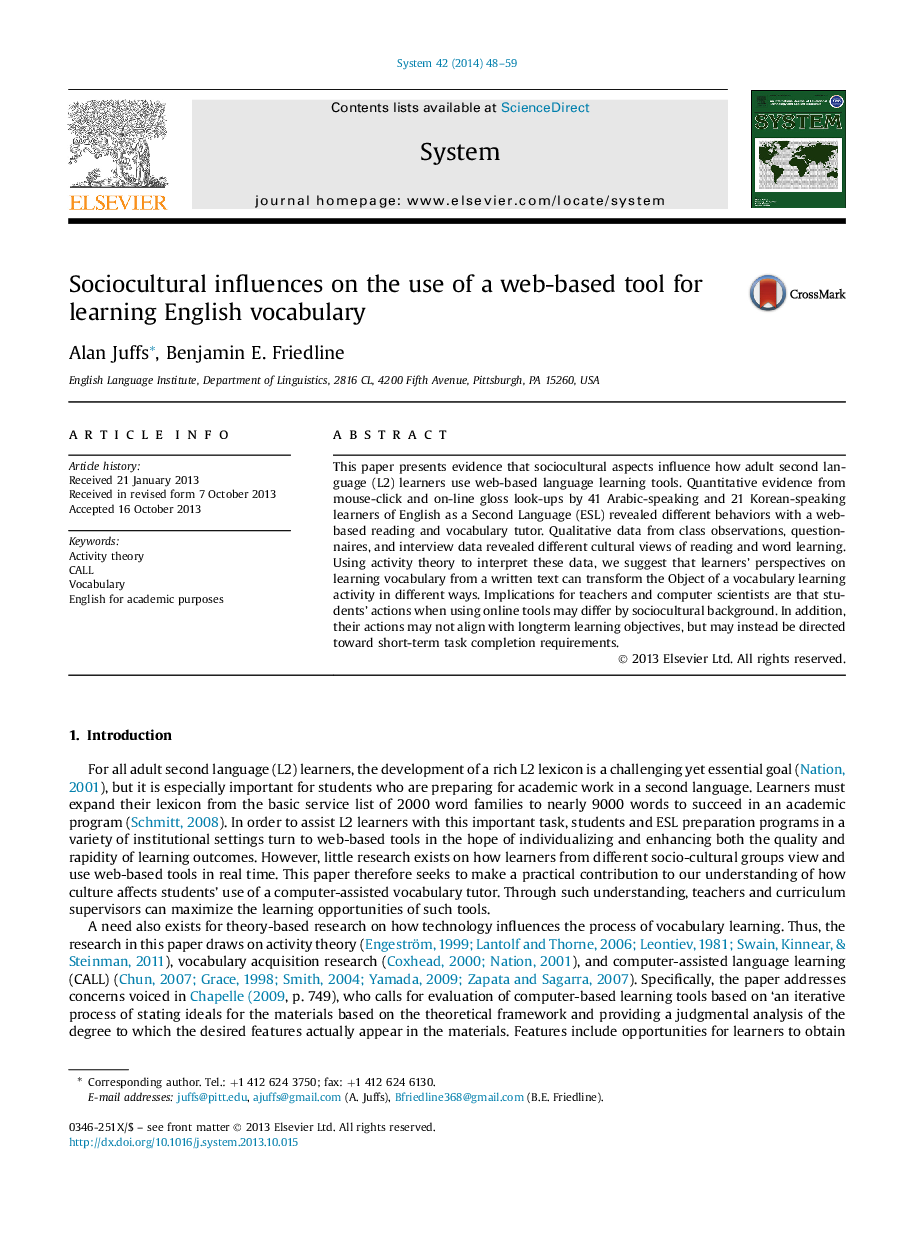| Article ID | Journal | Published Year | Pages | File Type |
|---|---|---|---|---|
| 373407 | System | 2014 | 12 Pages |
This paper presents evidence that sociocultural aspects influence how adult second language (L2) learners use web-based language learning tools. Quantitative evidence from mouse-click and on-line gloss look-ups by 41 Arabic-speaking and 21 Korean-speaking learners of English as a Second Language (ESL) revealed different behaviors with a web-based reading and vocabulary tutor. Qualitative data from class observations, questionnaires, and interview data revealed different cultural views of reading and word learning. Using activity theory to interpret these data, we suggest that learners' perspectives on learning vocabulary from a written text can transform the Object of a vocabulary learning activity in different ways. Implications for teachers and computer scientists are that students' actions when using online tools may differ by sociocultural background. In addition, their actions may not align with longterm learning objectives, but may instead be directed toward short-term task completion requirements.
